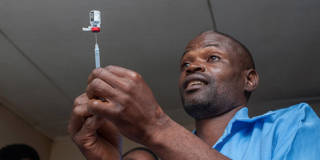When vaccines for COVID-19 became available, governments’ highest priority was to get them approved as quickly as possible, in order to save millions of lives. Regulatory authorization of a new, low-cost malaria vaccine, recommended by the World Health Organization in October, deserves to be treated with the same degree of urgency.
PRINCETON – In 2021, malaria caused 619,000 deaths, 77% of which were children under five, and 96% of them in Africa. But now, after decades of research – and several false dawns – a malaria vaccine known as R21/Matrix-M (henceforth just R21) has been shown to be effective in 70-78% of cases. Although three doses are required before that level of protection is reached, and a booster is needed one year later, the vaccine, developed at the University of Oxford and the Serum Institute of India, is cheap. It can be produced for $2-$4 per dose – comparable to the cost of other childhood vaccines.

PRINCETON – In 2021, malaria caused 619,000 deaths, 77% of which were children under five, and 96% of them in Africa. But now, after decades of research – and several false dawns – a malaria vaccine known as R21/Matrix-M (henceforth just R21) has been shown to be effective in 70-78% of cases. Although three doses are required before that level of protection is reached, and a booster is needed one year later, the vaccine, developed at the University of Oxford and the Serum Institute of India, is cheap. It can be produced for $2-$4 per dose – comparable to the cost of other childhood vaccines.